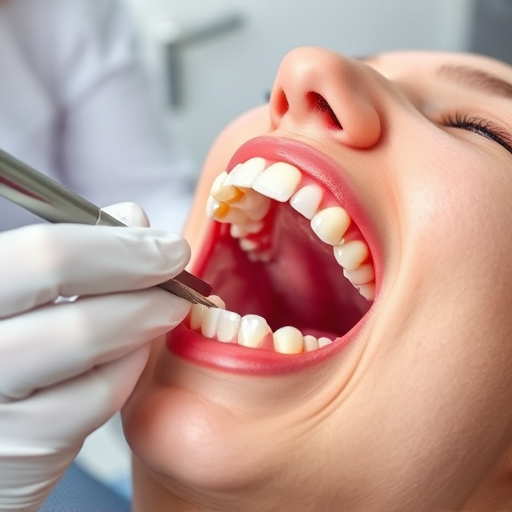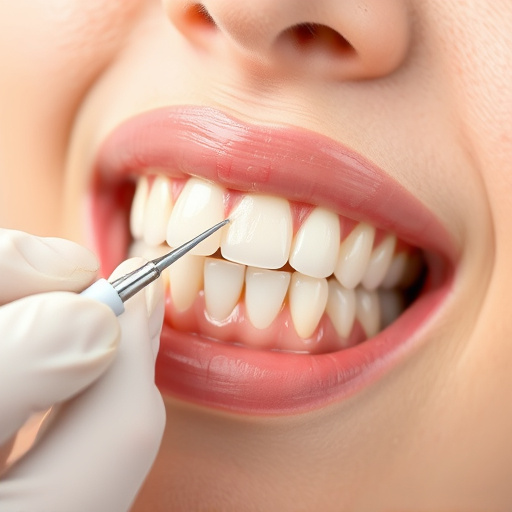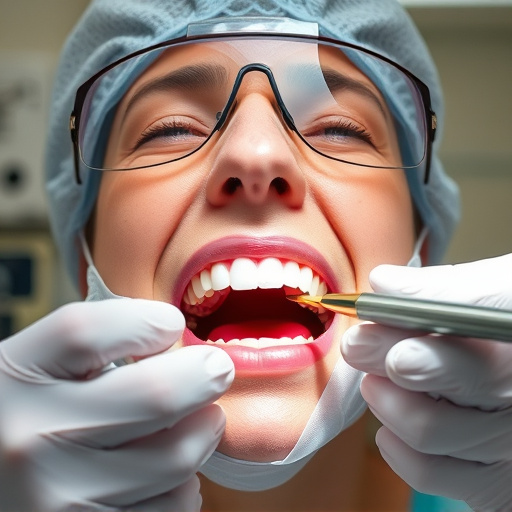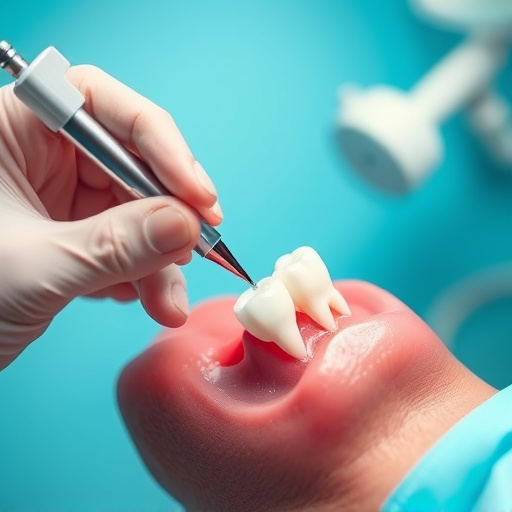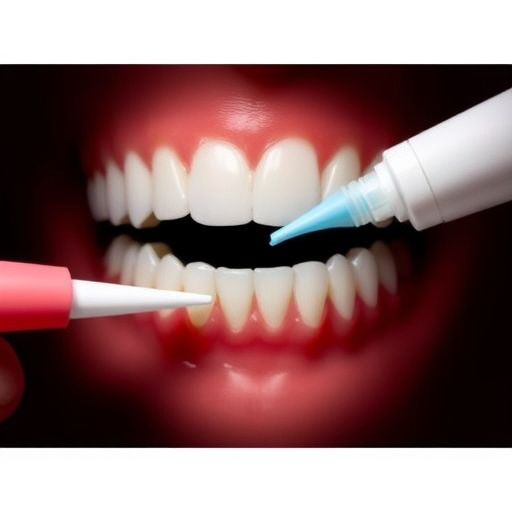TMJ disorder treatment begins with understanding the complex joint and its varied symptoms. Early detection through dental check-ups is key for preventive dentistry. Non-surgical holistic approaches like orthodontics, physical therapy, and dietary changes address causes and promote natural healing. Severe cases may require surgery or tooth extractions, tailored to severity and underlying issues.
TMJ disorder (TMD) affects millions, causing pain and dysfunction in the temporomandibular joint. Understanding both the causes and symptoms is key to effective treatment. This article explores holistic approaches, focusing on non-surgical options that target muscle imbalances, joint inflammation, and stress. We also delve into surgical interventions for severe cases, providing a comprehensive guide to TMJ disorder treatment tailored to individual needs.
- Understanding TMJ Disorder: Causes and Symptoms
- Non-Surgical Holistic Treatment Options
- Surgical Interventions for Severe Cases
Understanding TMJ Disorder: Causes and Symptoms
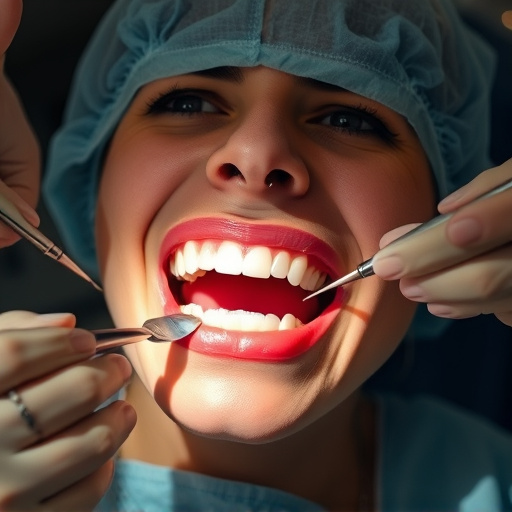
TMJ disorder treatment begins with understanding this complex condition. TMJ, or temporomandibular joint, disorder affects the hinge that connects your jawbone to your skull. It’s a multifaceted issue that can stem from various factors, including misalignment of the teeth or jaw, injury, stress, or arthritis. Symptoms vary widely among individuals but often include chronic facial pain, headaches, earaches, and difficulty chewing or opening the mouth wide. Some people also experience popping or clicking noises in the joint.
Early detection is key to effective TMJ disorder treatment. Many patients initially seek help from their family dentistry or general dentistry practice due to these symptoms. Preventive dentistry plays a crucial role in managing TMJ disorder, focusing on maintaining oral health and aligning teeth to reduce stress on the TMJ. Regular check-ups with your dental professional can help catch issues early, paving the way for less invasive treatment options.
Non-Surgical Holistic Treatment Options
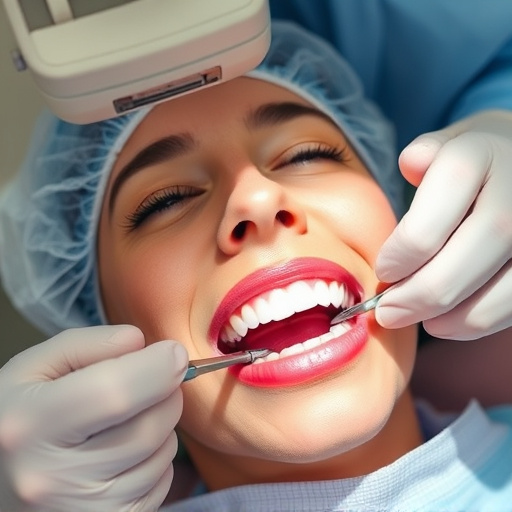
For those seeking alternative solutions to TMJ disorder treatment, non-surgical holistic approaches offer a promising avenue for relief without invasive procedures. These methods focus on addressing the root causes and overall well-being of the patient, promoting natural healing and symptom management. One such approach involves oral and dental adjustments, such as aligning teeth through orthodontics or dental bonding, which can reduce strain on the temporomandibular joint (TMJ).
Restorative dentistry plays a significant role here by repairing or replacing missing or damaged teeth, ensuring proper bite alignment. This not only alleviates pressure on the TMJ but also improves overall oral health. Additionally, holistic practitioners may recommend stress management techniques, physical therapy for facial muscles, and dietary adjustments to reduce inflammation, all of which contribute to an effective TMJ disorder treatment plan without surgery.
Surgical Interventions for Severe Cases
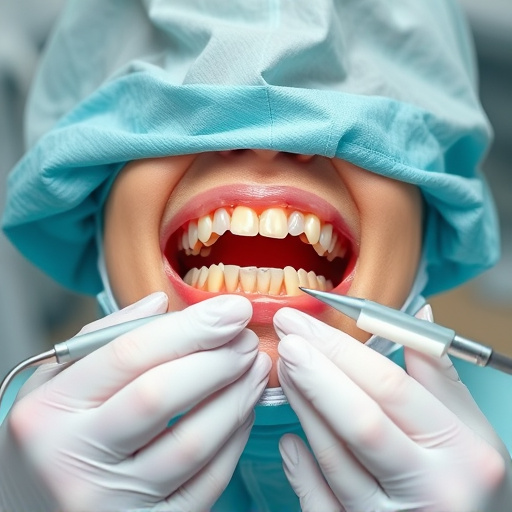
In severe cases of TMJ disorder where conservative treatments have failed, surgical interventions may be necessary. These procedures are typically considered when there is significant joint damage or pain that impacts daily life and traditional therapies cannot provide relief. Surgical options can range from arthroscopic procedures to open-joint surgery, depending on the severity and underlying causes.
For individuals with advanced TMJ issues, tooth extractions might be part of the treatment plan, especially if damaged teeth contribute to the disorder. Comprehensive dental care, including restorative dentistry techniques, plays a crucial role in post-surgical recovery. These measures ensure optimal oral health while promoting stability and comfort for the patient’s overall well-being.
TMJ disorder treatment extends beyond traditional surgical options, offering a range of holistic approaches that can provide significant relief. By understanding the root causes and symptoms, individuals can explore non-surgical, holistic treatments such as physical therapy, dental alignment adjustments, and stress management techniques. While severe cases may require surgical interventions, these comprehensive, whole-body strategies ensure a more balanced and long-lasting solution for managing TMJ disorder symptoms.

